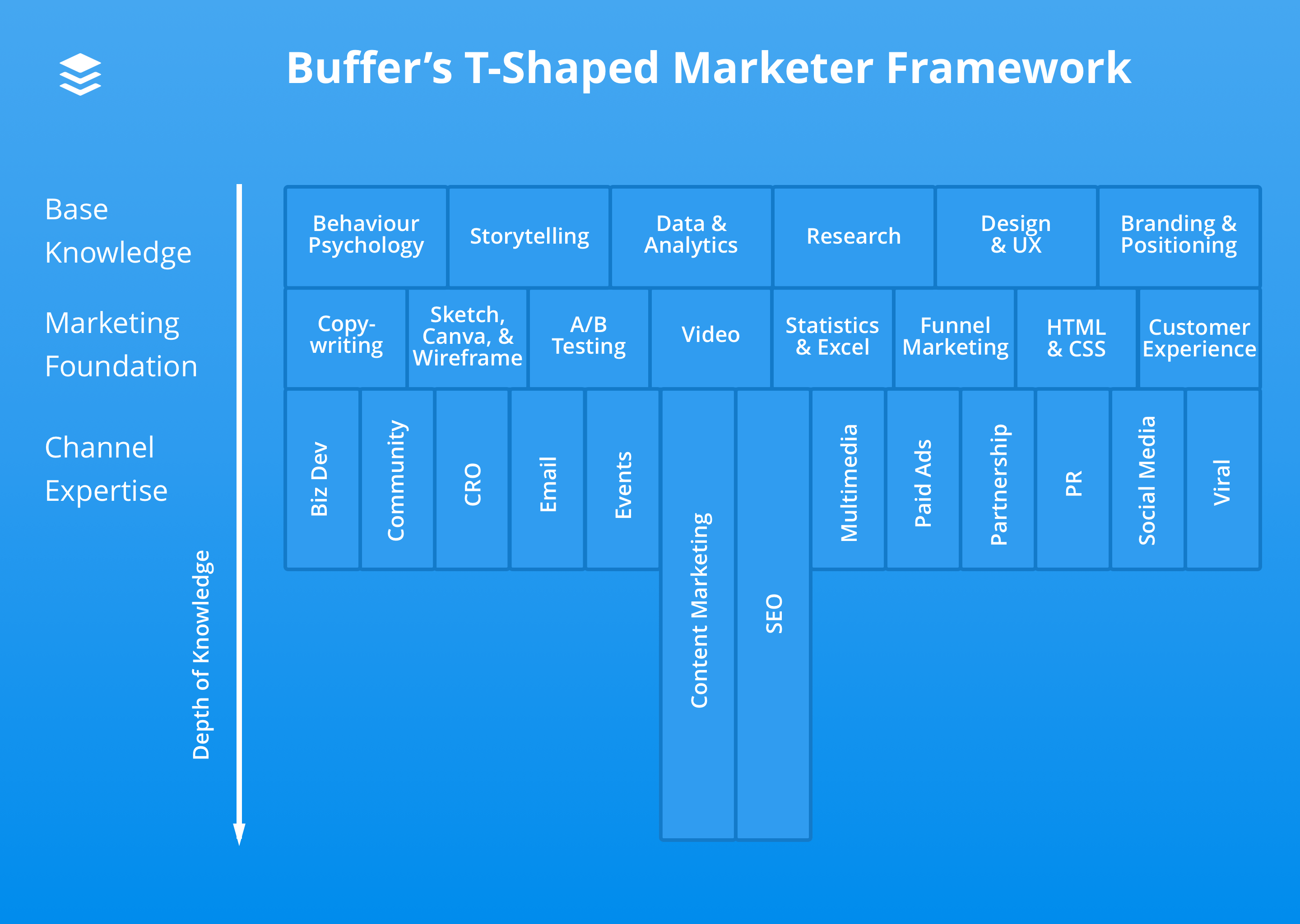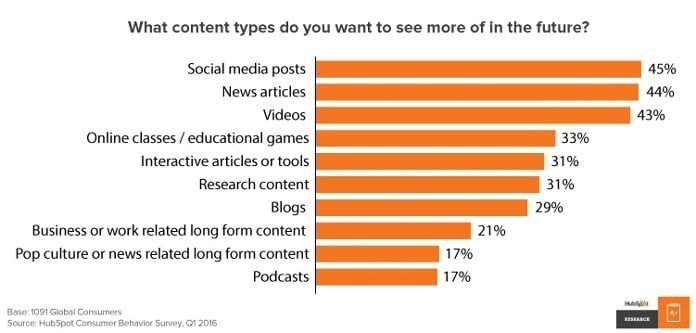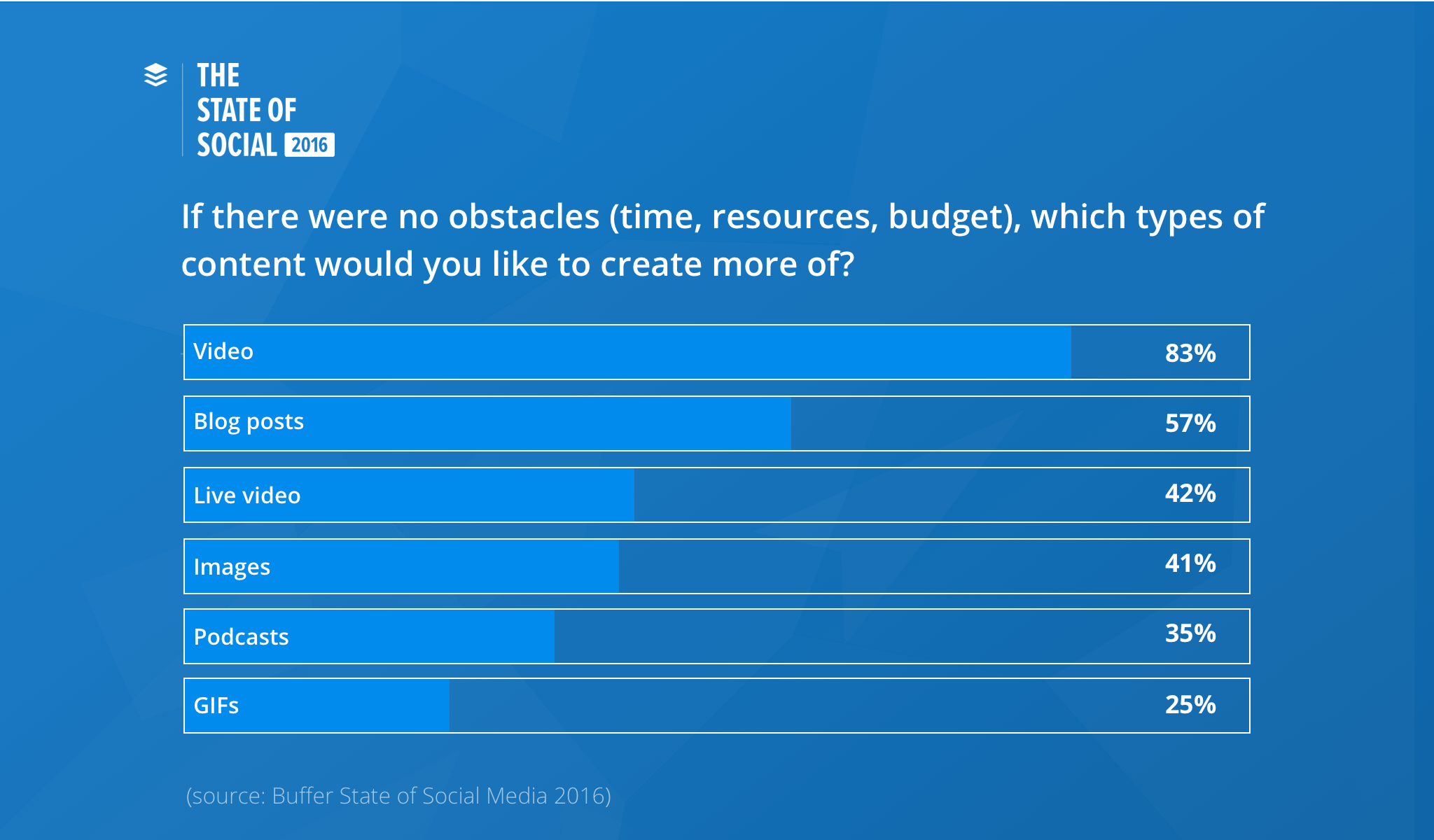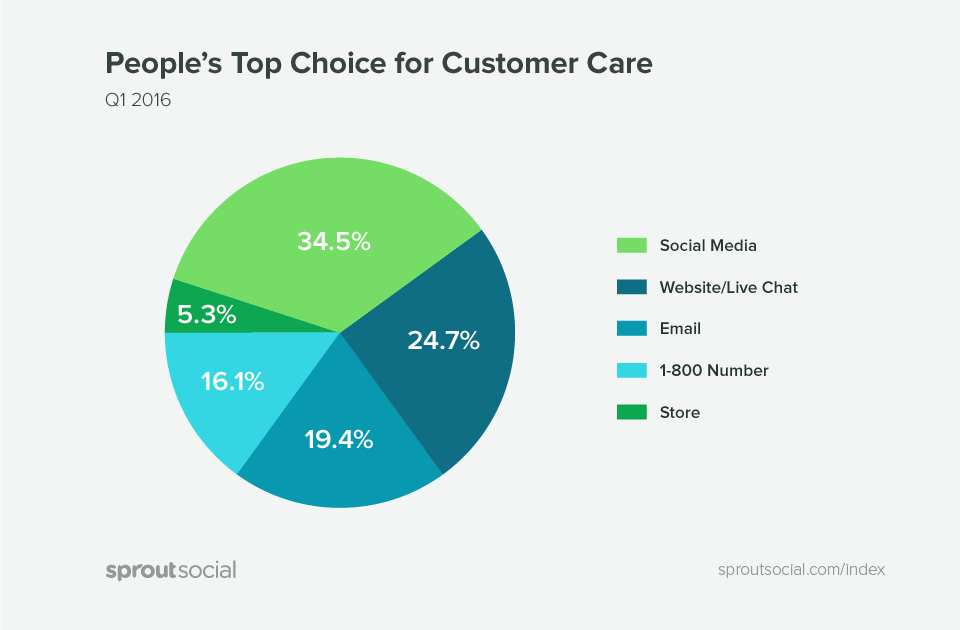
10 Important Skills and Traits Your Social Media Manager Will Need

Product Marketing @ Buffer
A decade ago, the role of a social media manager might not have even existed. Today, however, almost every company is involved in social media one way or another.
A quick look at Google Trends shows the rise in interest in the term “social media manager” over the years, and it seems that people have never been as interested in the term as they are today.

But what does it take to be a great social media manager? What are the skills to master and traits to have? How can you work on those areas?
In this post, we’ll try our best to answer all those questions. We’ll share 10 skills and traits that are crucial to being a great social media manager and relevant resources to help you improve in those areas.

Skills vs Traits
Throughout this post, we’ll discuss the various skills and traits we feel are most important for social media managers. But before we dive in, I quickly wanted to share some of my learnings about the difference between skills and traits.
Here’s a great explanation of skills vs traits from Red Letter Resumes:
Skills are tangible factors that you actually bring to the table. Things such as HTML, PowerPoint, Tax Preparation, Medication Compounding, Social Media Management, Lesson Planning, Accounts Receivable, Contract negotiations, etc. They are things that require you to develop a certain level of understanding, productivity or efficiency to claim expertise.
A trait is therefore defined as, “a quality that makes one person or thing different from another”. These are the things that make you who you are, that are part of your personality: the things that make you different from other people. The difference is that these are subjective. One person’s definition of being hard-working is not the same as another’s. Traits come without a quantifiable or standard measure. They are often, but not always, amplifiers of how you do or complete something that is a skill.

(Image from The Huffington Post)
When it comes to finding your ideal social media manager, I feel you may be looking for the right mix of tangible skills (things like copywriting and analytics) and traits (such as curiosity).
In addition, we feel that the role of a social media manager these days owes heavily to the concept of a T-shaped marketer. We use the T-shaped marketer framework at Buffer to describe the depth of skills each of us has as well as the breadth of experiences and knowledge that we all hold.
Here’s a n example of how this might look for someone with a depth of skill in content:

7 skills top social media managers share
1. Copywriting
Copywriting is a fundamental skill for social media marketing (and probably all areas of marketing). Writing good copy is required in many areas of a social media manager’s role, from filling up your social media profile description to crafting tweets and Facebook posts.
To drive engagement and clicks, you have to fit a captivating story into your social media post and without great copywriting skills that can be difficult.
To enhance your copywriting skills, I’d highly recommend studying a few copywriting formulas to help you craft inspiring copy. Finding a copywriting formula (or two) that works for you can be a great productivity boost and also improve the quality of the social media content you publish.
One of our favorite copywriting techniques here at Buffer is the ‘Before – After – Bridge’ – you may recognize it from a few of our blog posts and social posts. Here’s how it works:
Before – After – Bridge
Before – Here’s your world …
After – Imagine what it’d be like, having Problem A solved …
Bridge – Here’s how to get there.
Example:

For more great tips on copywriting, be sure to check out Kevan’s great post: If Don Draper Tweeted: The 27 Copywriting Formulas That Will Drive Clicks and Engagement on Social Media
Resources
- Copyblogger (Blog)
- 75 Resources for Writing Incredible Copy that Converts (Blog post by KISSmetrics)
—
2. Design (Graphics and Videos)
Research has found that social media posts with images receive more engagement and 43 percent of consumers want to see more videos content in the future.

Social media evolved a great deal over recent years, and we have moved away from mostly plain text based updates towards visual content such as images and videos. Designing and creating visual content is becoming an essential skill for social media managers.
Resources
- Canva’s Design School (Courses and articles)
- Why Every Marketer in 2016 Needs to Be a (Part-Time) Designer: 53 Design Terms and Tips to Level-Up (Blog post by Buffer)
- How to Create Social Media Videos on a Budget (Blog post by Social Media Examiner)
- A Video Marketing Guide On Creating Epic Content for Facebook, Snapchat, Twitter, and More (Blog post by Buffer)
—
3. Public Speaking (confidence in front of an audience)
With features and apps like Facebook Live, Instagram Live, and Periscope, live videos are becoming more and more important on social platforms. And marketers have noted this change, with 42 percent of marketers saying they want to create more live videos.

Why are marketers excited about live video? I believe the answer is two-fold: reach and engagement. Facebook Live videos are more likely to appear higher in the News Feed when those videos are live than after they are no longer live. From an engagement perspective, live content also provides opportunity for high-engagement and 1:1 interactions with audiences.
To tap into the live video trend, social media managers have to be confident enough to go live on social media to connect with their audience. Having public speaking skills will help you to present your ideas, interview guests, answer impromptu questions, and chat with your followers in real-time.
If you want to see our awesome Social Media Manager, Brian Peters, in action, you can find his live videos here. And below is a short clip of Brian discussing viral content:
Resources
- Toastmasters (Resources and community)
- 11 Places to Learn Public Speaking Skills for Free (Blog post by Inc.)
- 15 essential tips for mastering Facebook Live (Blog post by Mashable)
—
4. Customer Service / Community Engagement
Social media is the top channel people go to for customer care, but only 21 percent of businesses use social media for customer support. This means there’s a huge opportunity here to provide remarkable customer service experiences.

As the face of your company on social media and the person who is likely to be responding to at least some of the messages your brand receives on platforms like Twitter and Facebook, it’s important for social media managers to have conversational skills and empathy to help you customers on social media.
Community engagement is quite similar in many ways. A great social media community manager is able to ask the right questions to facilitate engagement and answer questions about the product, company, or industry.
Resources
- Support Ops (Podcast)
- The power of vulnerability (Video by Brené Brown)
- Customer Support Academy (Blog by Respond)
- Social Media Examiner (Blog)
—
5. Behavioral Psychology
With data and analytics, you know what type of social media posts do well. Behavioral psychology tells you the why — for example, why are people attracted to certain posts? Why do people share certain posts?
Knowing the what allows you to spot trends and try to repeat past successes; knowing the why enables you to understand the underlying causes for those trends in order to try and create future successes.
For example, your data might tell you that your tweets with images are doing better than tweets with only text. Based on just that information, you might create more tweets with images. However, it could be that your followers prefer visual content. Without knowing the psychology behind trends, you might miss out on opportunities to create other types of visual content such as videos and GIFs.
You certainly don’t need a degree or high level of expertise in psychology to be a social media manager, but a keenness to learn and understand psychology at some level is an important skill.
Resources
- Nir and Far (Blog by Nir Eyal)
- 50 Must-Read Psychology Books (Blog post by Gregory Ciotti)
- An Introduction to Marketing Psychology: How to Use Human Behavior to Make More Informed Decisions (eBook by HubSpot)
- 15 Psychological Studies That Will Boost Your Social Media Marketing (Blog post by Buffer)
—
6. Analytics
The term, ‘Analytics’, is used quite broadly here, referring to both social media metrics (e.g. likes, comments, shares, etc.) and business metrics (e.g. traffic, leads, conversions, revenue, etc.). A great social media manager is able to understand both types of metrics and tie them together to give an overall view of the company’s social media performance against business goals.
A social media manager should be the guiding light in your business when it comes to measuring your performance across various social channels. As such, learning the ins and outs of social media metrics and judging which ones are meaningful for your business is essential for a social media manager.
For example, if your goal is to drive traffic from social media channels to your website and drive sales, being able to attribute traffic and conversions back to channels and even certain posts will help your team to understand what content is helping you to achieve your goals.
Knowing how to read and interpret data is now an important skill for social media managers.
Resources
- Free Social Media Analytics Course (Course by quintly)
- Google Analytics Academy (Resource by Google)
- Startup Marketing Metrics for Pirates (Video by Dave McClure)
- HubSpot (Blog)
—
7. Budgeting
As a social media manager, you might be allocated a budget to work with. Apart from paid advertising, you might have to pay for things like a social media management tool, designs, images, or courses to improve yourself. Having some basic financial and budgeting knowledge can make you better on the job.
While you might not need to be an Excel expert, understanding Excel and knowing what you can do with it can be very valuable.

(Image from HubSpot)
Resources
- How to Spend a Social Media Budget (Blog post by Buffer)
- Social Media Marketing Budget Template (Template by Demand Metrics)
- How to Manage Your Entire Marketing Budget [Free Budget Planner Templates] (Blog post and templates by HubSpot)
- Microsoft Excel – From Beginner to Expert in 6 Hours (Udemy course)
—
3 personality traits great social media managers exhibit
8. Curiosity
A curious social media manager would immerse herself in the social media world, staying up-to-date with the latest development and experimenting with new social media marketing strategies.
Brian Peters is an epitome of this quality. When we discovered that videos, especially live videos, are becoming popular on social media, Brian immediately started making more videos on Facebook and Twitter. When Snap Inc. launched Spectacle, Brian got it as soon as he could to try it out and figure out how marketers can use it in their social media strategy.

HubSpot VP of Marketing Meghan Keaney Anderson said this really well when she described her ideal social media hire:
“We really look for people who have their finger on the pulse of how social is changing. It is one of the most rapidly changing industries right now, and I want someone who is paying attention to it, who is enthralled by it and fascinated by it. … Things shift so fast. If you think about the social media channels that were dominant two years ago and the social media channels that are dominant today, it’s just a totally different world.”
Resources
- How to Be a More Curious Person: 7 Tips for Becoming a Lifelong Learner (Blog post by HubSpot)
- 8 Habits of Curious People (Blog post by Fast Company)
—
9. Adaptability
Adaptability complements curiosity. When you discover something new or spot a trend, being able to quickly adapt to it can keep you ahead of the curve.
For example, the most engaging type of social media content has shifted from texts to images to videos. In a Fast Company article, Mark Zuckerberg was reported to have said,
“Most of the content 10 years ago was text, and then photos, and now it’s quickly becoming videos,” Zuckerberg said, justifying Facebook’s aggressive push into the area. “I just think that we’re going to be in a world a few years from now where the vast majority of the content that people consume online will be video.”
A great social media manager is able to keep up with such changes and pick up the necessary skills (e.g. graphic design, video making, etc.). (Imagine when virtual reality becomes the most popular type of content!)
Resources
- 4 Steps To Becoming More Adaptable To Change (Blog post by Fast Company)
- How can you learn faster? (Quora thread)
- Four-Hour Workweek (Blog by Tim Ferriss)
- Make It Stick (Book by Peter C. Brown)
—
10. Business Savviness
Being able to generate likes and shares is great; knowing how social media fits in with the entire business strategy is even better! A business-savvy social media manager sees the bigger picture and understands the role of social media in the company.
They understand which metrics are most relevant and crucial to the business and how social media can help to push them higher. For example, a B2B social media manager might focus on generating leads for her sales team while a B2C social media manager might focus on increasing customer purchases directly. This way, her impact goes beyond just social media but to the entire company.
Resources
- 11 Helpful Resources for Improving Your Business Skills (Blog post by HubSpot)
- How to Get Hired as a Social Media Manager (and Then Rock the Job Once You Have It) [SSM03] (Podcast by Buffer)
—
Skills and traits others think are important
To give you an unbiased view on this topic, I’d love to share the skills and traits that other companies and individuals think are important:
What the Best Social Media Community Managers Actually Do in Their Jobs by HubSpot
- Content creation
- Marketing analytics
- News junkie
- Customer service
- Community management
- Funnel marketing
- Project management
Lindsay Kolowich of HubSpot also mentioned the necessary skills for each of these areas in this article.
10 Essential Skills a Social Media Manager Needs To Have on Their Resume by Jeff Bullas
- Strategy planning
- Tactics and execution
- Community management
- Understand how content works on a social web
- Optimizing content and technology
- Creative mindset
- Writing skills
- Be on top of the latest digital marketing trends
- Analytical skills
- Leadership and communication skills
How to Build A Social Media Strategy Dream Team by HubSpot and Sprout Social
- Patience
- Technical aptitude
- Proactive
- Daring
- Passion
- Level of Experience
- Customer-first mentality
Over to you
While you might not need to be proficient in every single area mentioned above, being good at a few of them would make you a great social media manager and a valuable asset to your company.
What other skills do you think is important for a social media manager to have? Would you be up for sharing some resources for improving those skills, too?
Thank you!
Try Buffer for free
180,000+ creators, small businesses, and marketers use Buffer to grow their audiences every month.
Related Articles

TikTok just introduced Bulletin Boards, similar to Instagram's Broadcast Channels. Here's what you need to know.

Video, photos, carousels, or text? We dug into Buffer’s data, analyzing millions of social posts from Instagram, TikTok, LinkedIn, Facebook, Threads, and X to find out which content format performs best.

In this article, you'll find 20+ essential LinkedIn statistics that reveal the platform's reach, effectiveness, and continued growth.